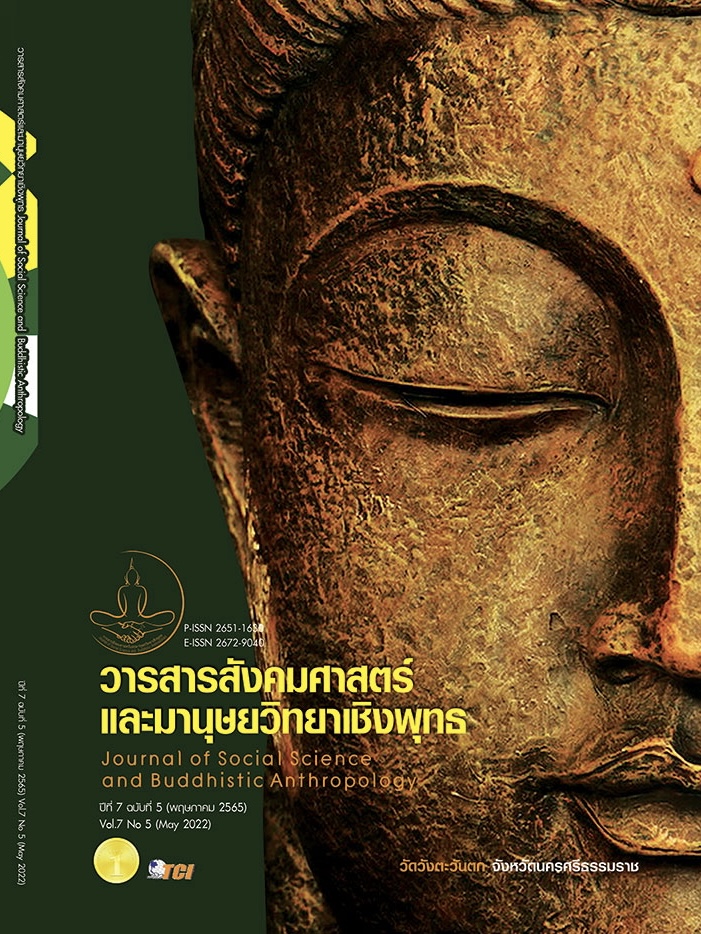DEVELOPING THE MODEL OF CONSTRUCTIVISM EXPERIENCE ARRANGEMENT FOR EARLY CHILDHOOD CHILDREN
Keywords:
Experience Arrangement, Constructivism, Impact, Model, Early Childhood ChildrenAbstract
The objectives of this research article were to 1) develop the model of constructivism experience arrangement for early childhood children and 2) study the impact of constructivism experience on early childhood children, student teachers, and teachers. This research was a qualitative research. The target groups were 1) 9 classrooms of kindergarten 1 (4 years old) and 2 (5 years old) at Anuban Chiang Mai School during the academic year 2011, 2) 9 early childhood student teachers from the Faculty of Education at Chiang Mai University, and 3) 9 kindergarten teachers. The instrument used in this study were 1) constructivist experience arrangement plan through MTPA model 2) MTPA Model Implementation Focus Group Discussion, 3) an unstructured interview to reflect on the teaching and learning activities according to the MTPA model of students and class teachers. Data were collected continuously during the 2011 academic year. Data were analyzed by synthesizing summary, categorizing descriptive characteristics, then data were analyzed and presented by descriptive methods. The results of this research were as followed 1) model for experience arrangement in order to construct children’s own knowledge was called MTPA model and 2) the impacts of the constructivist experience were all positive. It was concluded that MTPA model had impacted on early childhood children’s cognitive development and process skills. Moreover they also enjoyed learning. As for student teachers' impact, they changed their roles from teaching to facilitating learning for the children. Impact on teachers, they have gained the knowledge and ideas to apply innovations to the development of their own instructing.
References
กระทรวงศึกษาธิการ. (2542). พระราชบัญญัติการศึกษาแห่งชาติ. กรุงเทพมหานคร: พริกหวานกราฟฟิก.
มณฑิรา แก้ววิจิตร. (2553). การพัฒนาความสามารถด้านการคิดเชิงเหตุผลของเด็กปฐมวัยผ่านการจัดประสบการณ์โดยกระบวนการสร้างสรรค์ความรู้ด้วยตนเอง. ใน รายงานการวิจัย. มหาวิทยาลัยเชียงใหม่.
เรณู มูลงาม. (2553). การพัฒนาทักษะกระบวนการทางวิทยาศาสตร์สำหรับเด็กปฐมวัยโดยการจัดประสบการณ์ตามแนวทฤษฎีการสร้างสรรค์ความรู้ด้วยตนเอง (MTPA Model). ใน รายงานการวิจัย. มหาวิทยาลัยเชียงใหม่.
เรณู ศรีบุรินทร์ และคณะ. (2565). การพัฒนาทักษะสร้างสรรค์และนวัตกรรมของเด็กปฐมวัยโดยการจัดประสบการณ์การสร้างสรรค์ความรู้ด้วยตนเอง. วารสารศึกษาศาสตร์ มหาวิทยาลัยนเรศวร, 24(1), 246.
สงัด อุทรานันท์. (2530). การนิเทศการศึกษา หลักการทฤษฎี และการปฏิบัติ. กรุงเทพมหานคร: มิตรสยาม.
สงัด อุทรานันท์ . (2532). พื้นฐานและการพัฒนาหลักสูตร. กรุงเทพมหานคร: โรงพิมพ์มิตรสหาย.
สำนักงานเลขาธิการสภาการศึกษา. (2552). ข้อเสนอการปฏิรูปการศึกษาในศตวรรษที่สอง (พ.ศ. 2552 - 2561). กรุงเทพมหานคร: พริกหวานกราฟฟิก จำกัด.
สำนักวิชาการและมาตรฐานการศึกษา. (2552). หลักสูตรแกนกลางการศึกษาขั้นพื้นฐาน พุทธศักราช 2551. กรุงเทพมหานคร: โรงพิมพ์ชุมนุมสหกรณ์การเกษตรแห่งประเทศไทย จำกัด.
สุรางค์ โค้วตระกูล. (2544). จิตวิทยาการศึกษา. กรุงเทพมหานคร: ด่านสุธาการพิมพ์.
Brooks, J. G. & Brooks, M. G. . (1993). The case for constructivist classrooms. Alexandria, VA: Association for Supervision and Curriculum Development.
Fosnot, C. T. (1996). Constructivism: Theory, perspective, and practice. New York: Teacher College Press.
SafeGard Classes Online. (2016). Windows of opportunity for children's brain development. Retrieved December 20 , 2021, from https://sgclassesonline. com/ go/118-what-are-learning-windows-and-how-do-affect-childrens-brain-growth-development?fbclid=IwAR34xl1TFtyE3I8bl_tFr297ZrDXBqSgg27gopo PEYeJHUvwWRAYdbcQd_E
von Glasersfeld, E. (1995). Radical Constructivism : A Way of knowing and Learning. London: Falmer Press.
Downloads
Published
How to Cite
Issue
Section
License
Copyright (c) 2022 Journal of Social Science and Buddhistic Anthropology

This work is licensed under a Creative Commons Attribution-NonCommercial-NoDerivatives 4.0 International License.









